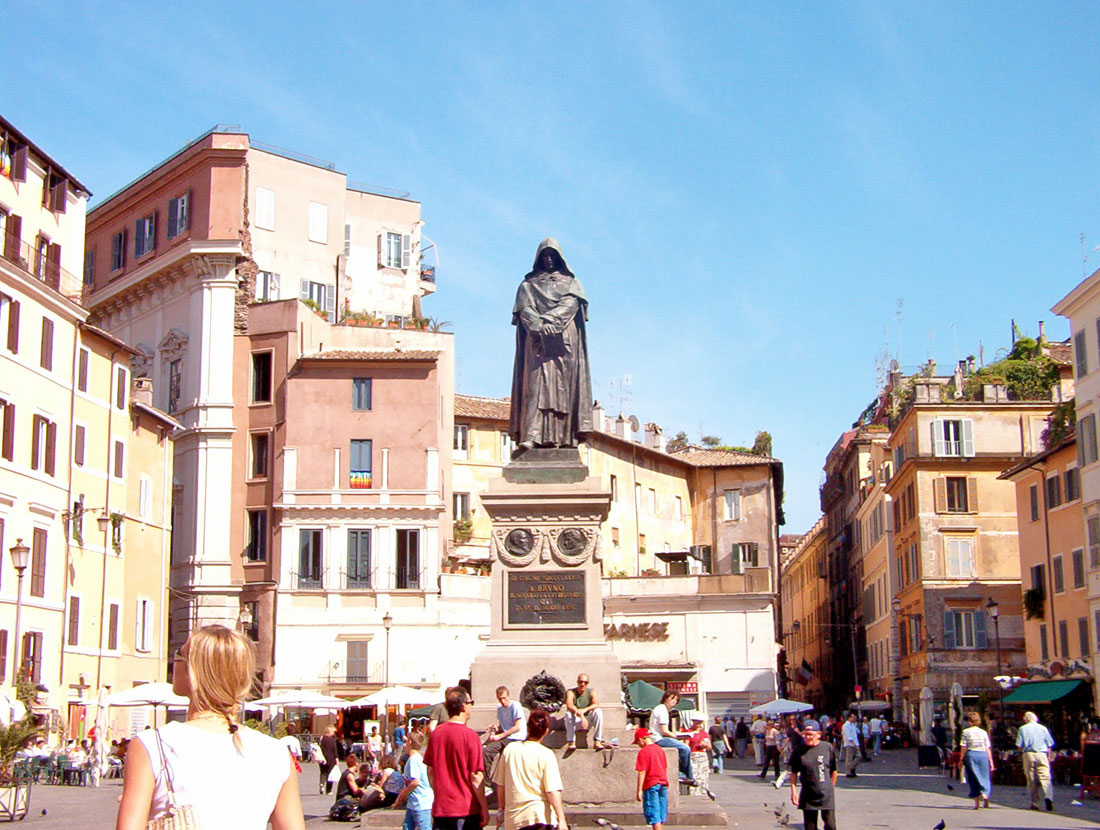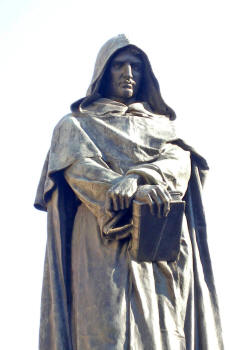
Born in Nola (in
Campania, then part of the Kingdom of Naples) in 1548, he was originally named
Filippo Bruno. His father was Giovanni Bruno, a soldier. At the age of eleven
he traveled to Naples to study the Trivium. At 15, Bruno entered the Dominican
Order, taking the name of Giordano from Giordano Crispo, his metaphysics tutor.
He continued his studies, completing his novitiate, and becoming an ordained
priest in 1572.
He was interested in
philosophy, and was an expert on the art of memory; he wrote books on mnemonic
technique, which Frances Yates contends may have been disguised Hermetic
tracts. The writings attributed to Hermes Trismegistus had played an important
role in the Renaissance Neoplatonic revival. At that time they were thought to
date uniformly to the earliest days of ancient Egypt and to encode a form of
"pristine wisdom" ("prisca philosophia").
They are now believed
to date mostly from about 300 A.D. and are associated with Neoplatonism.

In Rome he was
imprisoned for seven years during his lengthy trial, lastly in the Tower of
Nona.
Some important
documents about the trial are lost, but others have been preserved, among them
a summary of the proceedings that was rediscovered in 1940. [2] The numerous
charges against Bruno, based on some of his books as well as on witness
accounts, included blasphemy, immoral conduct, and heresy in matters of
dogmatic theology, and involved some of the basic doctrines of his philosophy
and cosmology.
Luigi Firpo lists them
as follows: [3]
Holding opinions
contrary to the Catholic Faith and speaking against it and its ministers.
Holding erroneous
opinions about the Trinity, about Christ's divinity and Incarnation.
Holding erroneous
opinions about Christ.
Holding erroneous
opinions about Transubstantiation and Mass.
Claiming the existence
of a plurality of worlds and their eternity.
Believing in
metempsychosis and in the transmigration of the human soul into brutes.
Dealing in magics and
divination.
Denying the Virginity
of Mary.
Bruno continued his
Venetian defensive strategy, which consisted in bowing to the Church's dogmatic
teachings, while trying to preserve the basis of his philosophy. In particular
Bruno held firm to his belief in the plurality of worlds, although he was admonished
to abandon it. His trial was overseen by the inquisitor, Cardinal Robert
Bellarmine, who demanded a full recantation, which Bruno eventually refused.
Instead he appealed in vain to Pope Clement VIII, hoping to save his life
through a partial recantation.
The Pope expressed
himself in favor of a guilty verdict. Consequently, Bruno was declared a
heretic, handed over to secular authorities on February 8, 1600. At his trial
he listened to the verdict on his knees, then stood up and said:
"Perhaps you, my
judges, pronounce this sentence against me with greater fear than I receive
it."
A month or so later he
was brought to the Campo de' Fiori, a central Roman market square, his tongue
in a gag, tied to a pole naked and burned at the stake, on February 17, 1600.

No comments:
Post a Comment